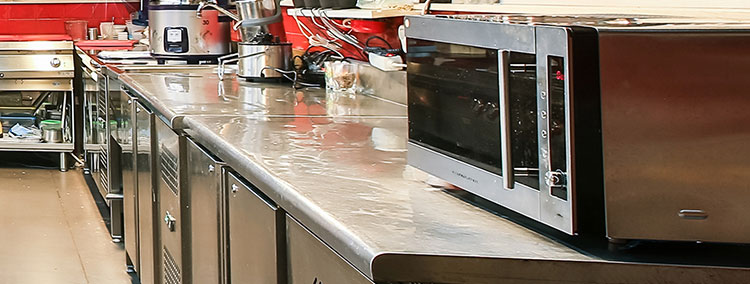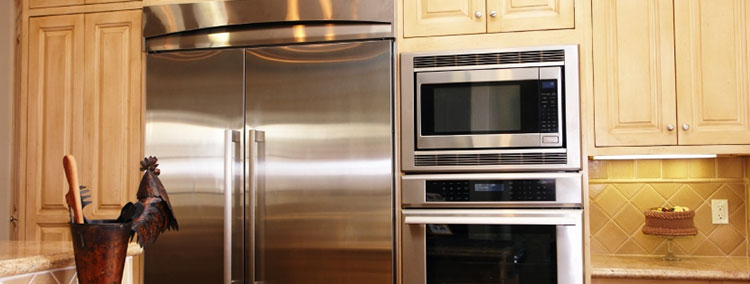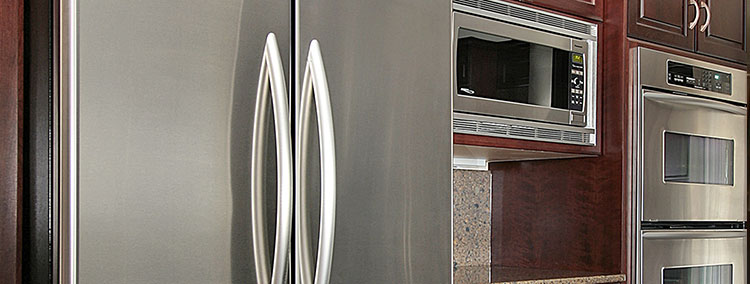Are you tired of opening your refrigerator and being met by foul odors? A bad-smelling fridge is not only unpleasant, but it also indicates the presence of bacteria and mold. But don’t worry; there are simple and efficient techniques to get rid of those unpleasant odors and restore the freshness of your refrigerator. Some of the ways you can go about it, as given by refrigerator repair professionals, include:
Empty and declutter the fridge
Begin by emptying your refrigerator of all items, including expired food, leftovers, and other potential odor causes.
You should throw away everything that has gone rotten or is no longer required. Doing this helps you to identify and concentrate on the source of the odor.
After removing all the items from the fridge, clean it. To clean the internal surfaces of your refrigerator, combine mild dish soap and warm water. Pay specific attention to spills, stains, and crevices, which can harbor bacteria and odor-causing agents. Rinse and thoroughly dry the surfaces with clean water.
Use natural deodorizers
Keep a bowl of baking soda or activated charcoal in your refrigerator to absorb odors. These natural deodorizers operate by neutralizing and trapping odors. To keep the baking soda or charcoal effective, replace it once a month or as needed.
Besides baking soda and activated charcoal, other products that you can use to absorb the odors include:
Coffee grounds: Because of their strong aroma, used coffee grounds can work as a natural deodorizer. Place used coffee grinds in an open container or coffee filter in the refrigerator. Coffee grounds assist in masking off-putting odors. For the best outcome, change the grounds every 1-2 weeks.
Lemon or citrus peels: Citrus fruits have a pleasant aroma that might help to mask odors. Put some lemon or orange peels in a bowl or on a platter in the refrigerator. Citrus oils in the peels mask and absorb undesirable odors. Every 1-2 weeks, replace the peels.
White vinegar: Vinegar is known for its deodorizing abilities. You need to wipe off the inside of the refrigerator with equal parts water and white vinegar solution. This assists in eradicating odors and disinfecting surfaces. Before replenishing the fridge, allow the vinegar to drain and air out.
Vanilla extract: Vanilla extract provides a lovely aroma that you can use to refresh your refrigerator. Dab a few drops of vanilla extract on a cotton ball or a little piece of fabric. Refrigerate it to give it a pleasant aroma. Every few weeks, replace the cotton ball.
Essential oils: To a cotton ball or a tiny piece of fabric, add a few drops of your favorite essential oil, such as lemon, lavender, or eucalyptus. Put it in your refrigerator to infuse it with a lovely scent. For the best outcome, renew the essential oil regularly.
Properly store the food.
You must ensure that all food is firmly wrapped or stored in airtight containers. This keeps strong odors from penetrating the refrigerator and helps keep it fresh. To seal leftovers and other food products, use plastic wrap, zip-top bags, or storage containers.
You should keep the perishable goods at or below 40°F (4°C): To inhibit bacterial growth and protect food quality, keep the refrigerator temperature to or below 40°F (4°C). You need to check the temperature with a refrigerator thermometer and make the necessary adjustments.
Store raw meats, poultry, and shellfish on the bottom shelf or in a separate drawer to avoid cross-contamination. Place these foods in airtight containers or plastic bags to keep juices from spilling onto other meals.
You should properly use the different refrigerator zones. To help you out, here is a guide on how to organize the different fridge sections:
Higher shelves: Store ready-to-eat meals on the higher shelves. These shelves are best reserved for leftovers, cooked dishes, and drinks. These meals require less cooking and have better safety margins.
Lower shelves or drawers: Keep raw meats, poultry, and shellfish in these sections to prevent drips from contaminating other foods. This zone is also suitable for storing dairy goods such as milk and yogurt.
Door shelves: Due to frequent opening and closing, anything stored in the refrigerator door may be exposed to slightly higher temperatures. Keep condiments, sauces, and other foods with high acidity in the door since they have a longer shelf life and are less likely to spoil.
Have a fridge cleaning schedule.
You should have a cleaning schedule for your refrigerator. Aim to clean your unit at least once a month or more frequently if necessary. Regular maintenance prevents the accumulation of odor-causing substances and aids in the upkeep of a clean and fresh-smelling unit.
The beauty of cleaning the appliance is that you don’t need to hire a professional to help you with it—you can easily do it on your own.
As a rule, avoid using harsh chemicals that can ruin the appliance.
Check the drip pan and drain.
Odors can occasionally be caused by a clogged or dirty drip pan or drain. Consult your refrigerator’s owner’s manual for instructions on how to reach and clean these components. Taking care of them can help prevent the development of unpleasant odors.
The drip pan is at the bottom of the refrigerator, behind the front grille or kick plate. If you can’t find it, consult the owner’s manual for your refrigerator.
Before proceeding, disconnect the refrigerator or switch off the electricity to avoid any electrical dangers.
When you find the drip pan, carefully slide it out of its place. Be cautious, as it may contain contaminated water or residue.
You should empty the drip pan contents into the sink or a suitable container. You can rinse it with warm, soapy water or clean it with a mild cleaning solution, depending on the level of dirt and grime.
Scrub away any residue with a sponge or cloth, then thoroughly rinse. Before putting it back in the fridge, ensure it is fully dry.
There you have it.
Following these basic suggestions will efficiently remove odors from your refrigerator and enjoy a fresh and pleasant-smelling atmosphere for your food storage. Remember to practice good cleanliness and careful food handling to avoid recurrent odors.
For peace of mind that your unit is in top working condition, have it inspected by an experienced commercial appliance repair Alexandria professional at least once a year.


